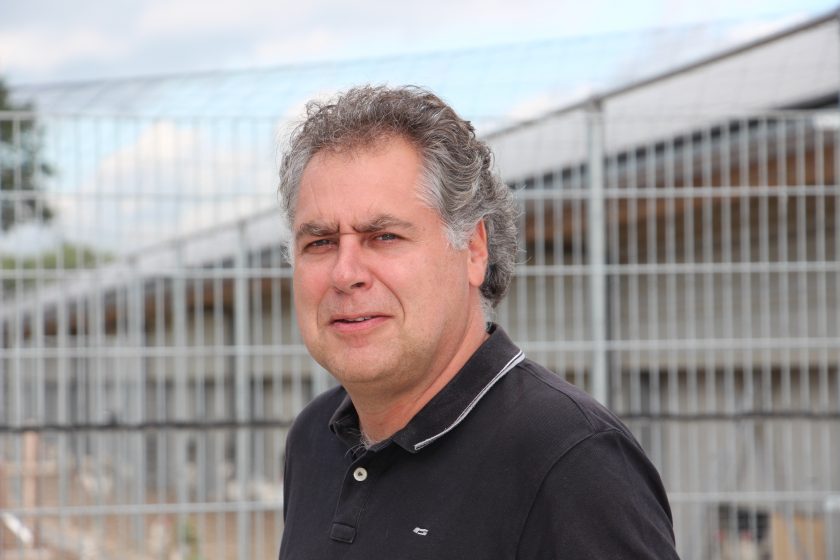Contenido disponible en: العربية (Arabic)
In the search for new and sustainable concepts in layer farming, uncertainties are evident. “Yet, you must have the guts to start somewhere”, says Ruud Zanders. And so he did. His “Kipster” egg production farms in The Netherlands have proved to be successful. Further expansion is expected shortly, also outside The Netherlands.
By Ad Bal
“Large scale poultry farming is not by definition the best answer to feed the world population”, says Ruud Zanders. “Even on the contrary!” Together with his co-founders, Ruud is owner and CEO of “Kipster” in The Netherlands, a high end, revolutionary layer farming concept. Currently, there are three Kipster farms in operation, populated with around 67,000 Dekalb White birds.
“Our objective is to show to the world that it is possible to also produce poultry and eggs in small sized operations, but in a sustainable way. And yet being productive and efficient. But our approach is different from the current and generally accepted methods. I came into this insight some years ago when a number of poultry farmers from African countries visited The Netherlands. Their aim was to learn from The Netherlands as a top level country in poultry production. I took them around a number of farms, a feed plant, processing plant and so on, and told them about how Dutch farmers manage to produce in a highly efficient way, where they raise their flocks on high energy diets that are produced from mostly imported grains. They were stunned to hear that those valuable grains are fed to chickens. ”If we manage to get grains, we eat those ourselves, rather than feed them to chickens”, they told me. That truly opened my eyes. I had been involved in large scale poultry farming myself. But that had gone wrong, so I knew from my own experience the negative side of large scale production. The remarks of the Africans truly changed my mind.”
Start from scratch
This was more or less the basic thought for the foundation of Kipster. “Together with my three partners and co-shareholders we started, truly from scratch”, Ruud continues. “Literally on an unwritten, blank piece of paper. Our objective was to found a new business with full focus on animal welfare, care for the environment and for humans. We approached our objective from different angles, “out of the box” so to say. When Steve Jobs introduced the iPhone a few decades ago, who would have expected that he was introducing something that would change the world in a certain way? Why shouldn’t that hold true as well for agriculture production and for poultry farming in particular? But a start must be made somewhere, we must change our mindset. How ethical is it to keep producing the way we always have?
The world population keeps growing and with that the available land for agriculture is getting more scarce. Our aim with Kipster is to show that producing eggs in a sustainable and circular way is possible, and not further harm and deteriorate mother earth.”
In- and outdoor
A Big Dutchman aviary system provides the indoor living environment for the birds. Moreover, the birds have access to an indoor garden where they can scratch, dustbathe and even have artificial trees to jump in. An intelligent air cleaning system reduces the fine particle emission to an absolute minimum, thus creating the climate inside the house to be healthy and comfortable. This technique is also applied in hospitals and garages.
During the daytime until dawn, the birds also have access to outdoor gardens where they can again scratch and roam around.
White layers
We prepare our own feed under strict conditions. Kipster doesn’t use any agricultural land, hence no cereals which are also suitable for human nutrition. We feed our birds with a specially developed feed which is made from residual flows from the food industry, such as from large bakeries. Also we use byproducts from cereal processing, such as oat hulls. Our chicken feed is made with 95% of leftovers and 5% of vitamins and minerals. The CO2 footprint of one kilogram of Kipster feed is 50% smaller compared to standard feed.
This means that formulating this feed is quite a challenge however, as the birds of course need to be fed according to the standards of this breed. After all, they are supposed to lay a full number of eggs.
Luckily our layer flocks indeed produce the expected number of good quality eggs.
Sustainable egg box
The eggs for Lidl are packed in specially designed 5- and 10-piece, blue colored boxes. It is a highly sustainable box, made from potato starch, cellulose fiber, and water. The CO2 footprint of this box is 90% smaller compared to a similar-sized carton box. On our farms, we have our own packing station.
Last but not least, the male chicks from our layer flocks at the moment of hatch are not culled. Instead, we raise them until an age of 18 weeks and then take them to slaughter. These birds, as well as our spent hens, are processed into rooster burgers and chicken sausages respectively. These products are also marketed through Lidl.
Expanding business
“All in all, we are convinced that with Kipster we have developed a promising, sustainable concept in egg production”, Ruud Zanders concludes. “This is also recognized throughout our country and abroad. We have been awarded various times by newspapers and all kinds of organizations across the globe. We produce under the 3 star label of the Dutch Society for the Protection of Animals. Also, other animal protection organizations like “Wakeful Animal” and “Compassion in World Farming” are supporting us. That’s truly an honor and is satisfying. Currently we are in the process of expanding our business in Belgium. And most likely, soon we will also make our entry into the USA. With that, we truly believe in Kipster as a future solution in egg production across the globe!”

